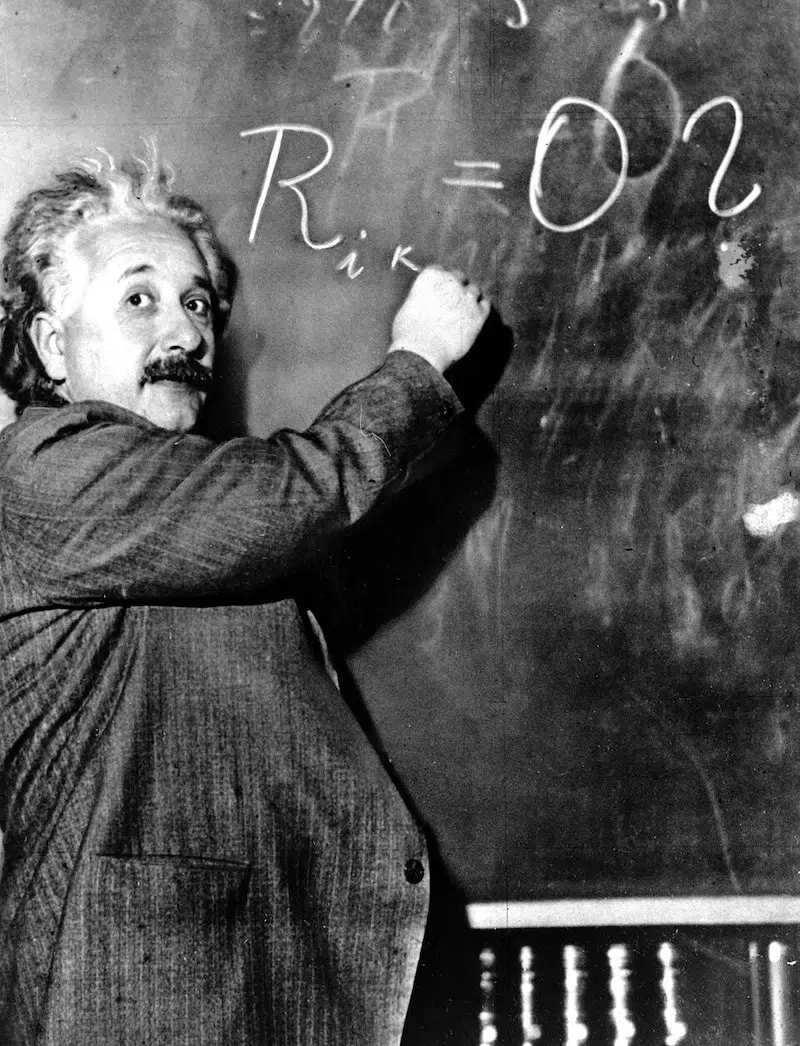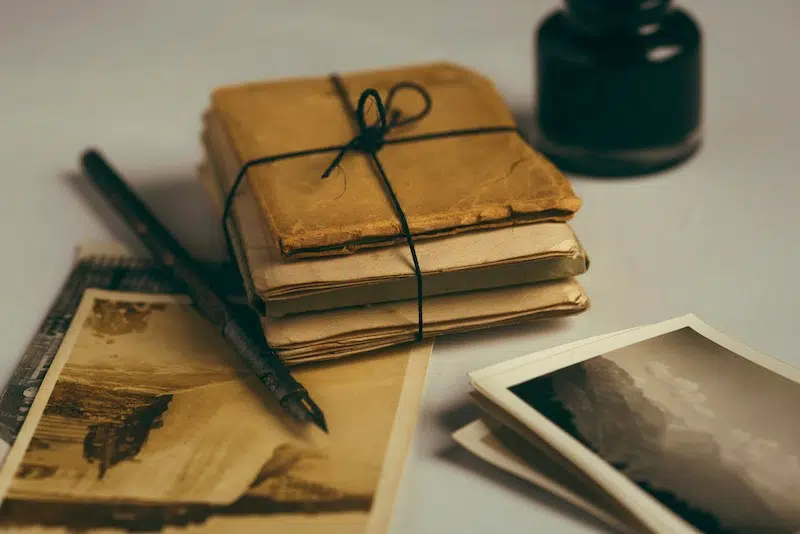

Albert Einstein writing a density formula of the Milky Way in 1931 at the Carnegie Institute of the Mt. Wilson Observatory in Pasadena, Calif. (Public domain)
In 1915, a 36-year-old Albert Einstein was living in wartime Berlin, tirelessly chipping away at what would become one of the world’s most foundational truths: the theory of general relativity. By then, the young physicist had been working on his revolutionary theory for about eight years, and he had finally condensed it into a mere two pages. Only a few days later, he would send a poignant letter to his son Hans Albert, who was living with Einstein’s estranged wife and his other son, Eduard “Tete,” in Zurich.
“You told me when I was in Zurich, that it is awkward for you when I come,” Einstein begins. “I will in any case urge that each year we spend a whole month together, so that you see that you have a father who is fond of you and who loves you.”
Aside from his lamenting and longing, Einstein manages to reflect upon the joy of learning, offering that there are “many good and beautiful things” that Hans could learn from him.
“What I have achieved through such a lot of strenuous work shall not only be there for strangers but especially for my own boys,” Einstein notes. “These days I have completed one of the most beautiful works of my life, when you are bigger, I will tell you about it.”
While the letter’s first section concerns Einstein’s relationship to learning, the second addresses that of his son’s. Einstein praises Hans’s budding passion for the piano, a “pursuit” that, along with carpentry, is among the “best” for someone his age. He insists that Hans play the music that “pleases you,” even “if the teacher does not assign those.” Einstein muses, “That is the way to learn the most, that when you are doing something with such enjoyment that you don’t notice that the time passes.”
In just one phrase, Einstein reveals what guides successful learning: completely immersing oneself in creative and intellectual endeavors. This, however, isn’t the only piece of advice he had about such existential matters. In 1951, Marion Block Anderson, then a freshman at Oberlin College, penned a letter to Einstein asking, “Why are we alive?” In his response, he succinctly yet elegantly summarized what he believed to be the meaning of life. “The question ‘Why’ in the human sphere is easy to answer: to create satisfaction for ourselves and for other people,” he wrote.
As for his theory of happiness, Einstein noted on hotel stationery to a courier in 1922: “A calm and modest life brings more happiness than the pursuit of success combined with constant restlessness.”
Einstein was one of the most accomplished, gifted, and astute thinkers not only of his time but throughout history. It’s also clear, though, that he was equally adept when it came to the human condition.
According to Albert Einstein, the key to successful learning is complete immersion in creative and intellectual endeavors.


Albert Einstein’s official 1921 Nobel Prize in Physics photograph. (Public domain)
Einstein revealed these thoughts in a poignant letter to his son, Hans Albert, in 1915.
Sources: Einstein on Why We Are Alive; Albert Einstein on the Secret to Learning; Albert Einstein Tells His Son That the Key to Learning & Happiness Is Losing Yourself in Creativity (or “Finding Flow”)
Related Articles:
Researchers Discover Previously Unknown Music Mozart Composed as a Teenager
Your Brain on Books: Scientists Reveal What Happens in Our Heads When We Read



